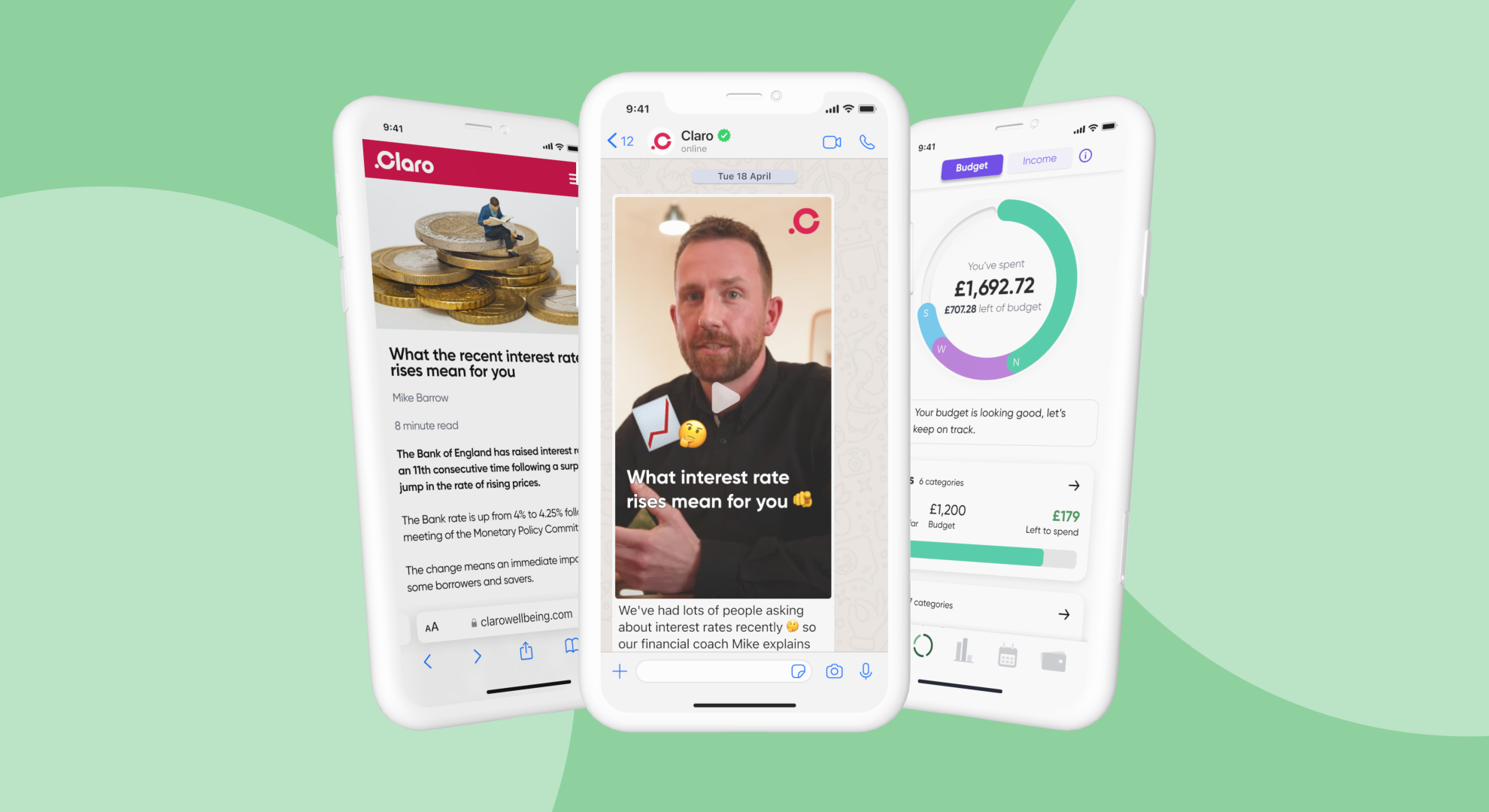6 min read
Should employers acknowledge Blue Monday?
Blue Monday (15 January) has a mixed reputation. But there’s still value in using the day to raise awareness of mental health and wellbeing...

Across the country more and more companies are stepping up their ethics and making a real effort to improve their impact on society and the environment.
This mirrors the rise in conscious shoppers who are saying no to fast fashion and bye-bye to businesses that underpay staff, reject sustainability or fail to take their environmental responsibilities seriously.
One way companies can demonstrate their commitments to society, sustainability and the environment is by becoming B Corp certified.
This could include the introduction of internal policies that support staff’s financial, mental and physical wellbeing, alleviating poverty in the community through fair trade sourcing or selling products that have a positive environmental impact.
Post pandemic and amidst a cost of living crisis, the UK public have been outspoken about what they expect from companies.
More than two in three (69%) think business leaders should act to reduce the burden of the cost of living crisis for staff, customers and suppliers, according to a YouGov survey.
Some 60% say they are responsible for easing the financial pressure of employees, such as increasing salaries and subsiding travel costs.
Any company can claim to care about their impact on society, but B Corp certification proves it does. However, it does mean your business’s activities are public and leaves you open to scrutiny.
Below, we’re going to look at what it means to be B Corp certified, how you receive certification and how you can boost your score with financial wellbeing.
There are more than 5,000 B Corp companies in the world - with around 1,000 in the UK.
To become B Corp certified by not-for-profit organisation B Lab, firms must score at least 80 points on the B Impact Assessment (BIA). This is made up of around 200 questions tailored to your business, industry and location.
The BIA covers five categories (Governance, Workers, Community, Environment and Customers) and is designed to measure your company’s positive impact on society and the environment.
The questions will differ depending on your company, but could include ‘What percentage of employees on an FTE (Full Time Equivalent) basis are paid at least the equivalent of a living wage for an individual?’ and ‘What percentage of energy use is produced from renewable sources?’.
Don’t worry if you do not score 80 or above on the first go. B Lab says this doesn’t usually happen when businesses first apply, but they can improve their practices over time.
You’ll also be asked to fill out a 'Disclosure Questionnaire' to highlight any sanctions, fines or sensitive practices.
You’ll also need to meet B Lab’s legal requirement to ‘create a material positive impact on society and the environment through your business and operations’ and ‘considering stakeholder interests - including shareholders, employees, suppliers, society and the environment’.
The worker’s category of the BIA includes 32 questions that assess a company’s support of their employees’ financial security, health and safety, wellness, career development, engagement and satisfaction.
The financial security section alone is worth more than 14 points - almost 20% of the total points needed to qualify as a B Corp firm.
To get the points, businesses must be able to show they provide a number of workplace features to ensure their staff’s financial health.
This could include a pension or other retirement saving option, or offering financial coaching and debt management.
But what other steps can you take to ensure staff are not struggling financially? For example, does your benefits package serve all members of staff or are there other things you can include that will be beneficial to those on the lowest salaries?
For workers, discounts and rewards may be popular to some but other, non-monetary options may be more favourable to others. This could include more flexible working arrangements to cut the cost of travel and childcare and enable more time with their family.
Can you offer financial coaching to every member of staff, so no one feels left out? Talking about money can be difficult, but offering confidential one-on-one sessions will not only help give workers peace of mind with their finances but will also improve their mental health.
Financial wellbeing can go beyond supporting your workers.
For example, are there ways you can help your lowest-income customers?
This could include raising awareness of government benefits and support schemes, offering staff volunteer days to help improve their community’s financial literacy and paying their bills and distributing essentials, such as food and clothes.
Environmental initiatives that support financial wellbeing could include offering guidance to staff who work from home on how to cut their energy consumption - and cost - those who commute, advice on how to cut their carbon footprint.
On the governance side, are there any partnerships or campaign groups you can be part of that can force change to improve society’s financial wellbeing and education?
Is there anything you can do to make the financial needs of your lowest-paid staff known to those in power? You could also consider ensuring your staff know and understand current government policies and how they could benefit from them.

6 min read
Blue Monday (15 January) has a mixed reputation. But there’s still value in using the day to raise awareness of mental health and wellbeing...

4 min read
Ever wished you had a money-whiz friend you could ask anything, as often as you like?

7 min read
Millions are being impacted by financial stress. Yet, until now, workers in frontline occupations have not been able to benefit from educational...